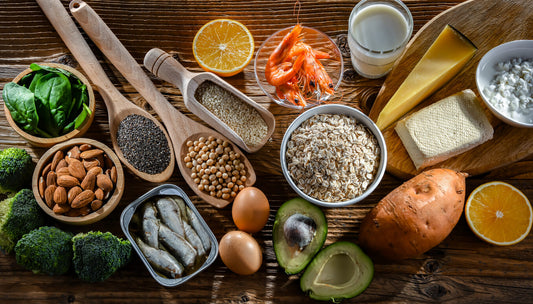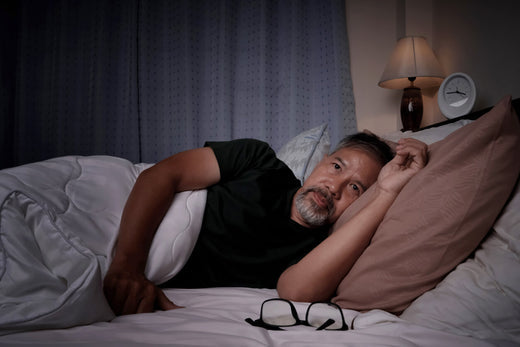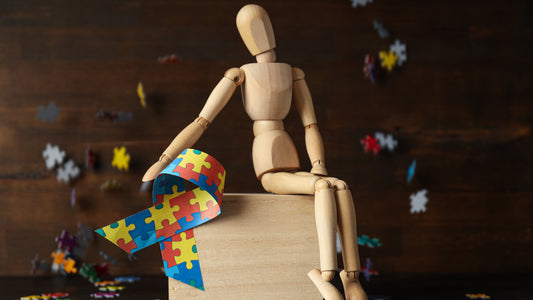Living with ADD, also known as ADHD, often means struggling with impulse control problems that affect your decision-making and overall quality of life. ADHD is on the rise more than ever before with diagnoses in adults increasing four times faster than in children, according to research in JAMA Open Network.
These stats are no doubt concerning, but nothing is hopeless when you have the right strategies and support system in place.
Whether you’re struggling with your job performance, want to improve your social skills, or need support for your mental health, you can heal ADD/ADHD by strengthening impulse control. Impulsive urges can negatively affect your work, relationships, and overall well-being.
But the good news is there are practical strategies that effectively help you improve impulse control with ADD. With these tips, you can stop being so reckless and start making better choices.
Understanding Impulse Control with ADHD
Impulsivity is a hallmark of ADHD, making it challenging to resist immediate urges or delay gratification. Before you can get it under control, you need to know what impulsivity looks like and how it may be showing up in your life, including:
- Interrupting Conversations: If you’re frequently cutting others off mid-sentence without realizing it, but you’re aware enough to recognize when you need to stop.
- Impulse Buying: Making unplanned purchases you later regret, causing financial strain and potentially exacerbating mental health issues.
- Difficulty Waiting: Struggling to wait in lines or for your turn in activities, even when you’re excited to be a part of something good or beneficial to you.
- Emotional Outbursts: Reacting intensely to minor frustrations or challenges, but acknowledging it feels out of character or without intentional malice.
- Procrastination: Putting off tasks until the last minute and then rushing through them impulsively, which may happen even after planning tasks ahead of time.
Knowing your ADD/ADHD type can have an immense impact on overcoming impulsivity. Whether you have the hyperactive type or not, ADD/ADHD involves a deficiency in the brain's ability to regulate dopamine.
People with ADHD tend to have low levels of this neurotransmitter. To boost dopamine, individuals with the condition seek out stimulating activities and immediately rewarding behaviors. Plus, having ADD makes it harder to consider the consequences before taking an impetuous action.
Practicing Daily Stress Reduction Techniques
Understanding the connection between stress and impulse control problems is critical in healing ADHD. Stress can impair judgment and decrease impulse control, which is why managing your emotions is a key factor in healing ADHD.
When you have ADHD, experiencing stress causes your brain's executive functions (which are already compromised in concentration and focus) to become further impaired leading to increased impulsivity.
When flooded with stress hormones, the neurons in your prefrontal cortex—the part of your brain responsible for decision-making and self-control—become less active and shut down. This gives other areas of the brain that are responsible for cravings and habits control over your behavior. This significantly increases impulsive actions like cravings or outbursts.
In Amen University’s Healing ADD course, you’ll learn practical daily stress-reduction techniques including how to incorporate:
- Regular exercise and physical activity to help reduce stress levels and improve your mood.
- Healthier nutrition plans for a more balanced diet that stabilizes blood sugar levels and reduces stress-induced cravings.
- A more established and structured daily routine to give you back a sense of control and reduce daily anxiety
- Limited screen time to reduce exposure to blue light screens—which disrupts sleep quality— and create a brain-calming bedtime routine
- Deep breathing habits to calm your nervous system—particularly the vagus nerve—for a few minutes daily to strengthen focus, concentration, and patience.
You can add stress reduction techniques like meditation to help regulate emotions that may be causing you to act under stress.
Optimizing Brain Healthy Nutrition for ADHD
According to psychiatrist and neuroscientist Dr. Daniel Amen, optimal brain health is essential for managing ADHD symptoms, including impulsivity. One of the cornerstones of Dr. Amen’s approach is brain-healthy nutrition.
Diet plays an important role in ADHD, influencing your mental clarity, energy stability, mood regulation, and ability to manage cravings.
For more holistic remedies for ADD, here are three simple brain-healthy nutrition tips from Dr. Amen and his wife, Tana Amen, author of Healing ADD Through Food Cookbook. These diet strategies will help you feel better, think clearer, and be calmer:
Include adequate protein in every meal to stabilize blood sugar levels, reducing spikes and crashes that lead to stress in the body and impulsive behavior.
- Increase omega-3 fatty acids to repair brain matter and enhance cognitive function, which potentially reduces your brain’s vulnerability to impulsivity.
- Reduce sugar and artificial sweeteners that trigger cravings and spike blood sugar levels, which can make you feel agitated and more impulsive.
By adopting healthy nutrients into your diet, you can learn how to treat ADD without medication. Combine a healthy diet with other attention deficit disorder treatments you discuss with your physician.
Identify Your Personal Motivations
Understanding who you are and what you want in life is crucial in managing impulsivity. Getting to know your core motivations and goals can help you resolve the fears, indifference, and distressing thoughts that cause procrastination and self-doubt.
Instead of being filled with automatic negative thoughts (ANTs) that trigger impetuous actions, create a pattern of more positive thinking by realizing what you can do with ADD/ADHD.
Choose an easy-to-follow task and finish with a brain-healthy reward to reinforce your new habits. Learning what drives you can provide clarity and purpose for future decisions and reduce impulsive behavior. Amen University’s Healing ADD Course offers strategies and resources for managing ADHD symptoms effectively.
Implementing Natural Remedies For ADD
In Amen University’s digital ADHD course, you’ll get an ADD for adults test to help identify specific patterns and support a more personalized treatment plan moving forward.
By understanding your unique type, you can target impulse control using alternative treatments for ADD that go beyond conventional methods. Here are three things to kickstart your next steps in implementing natural remedies for ADD:
Start with being intentional about structuring your daily routine with stress-reducing activities and a brain-healthy nutrition plan.
- See an integrative (functional medicine) physician to check and balance iron ferritin, vitamin D, magnesium, zinc, and thyroid levels that are not or suboptimal.
- Journal to track your stress levels and positive moods so you can better know yourself and which foods or activities exacerbate or improve your symptoms.
With these effective ways to strengthen impulse control, you can become more thoughtful and make better decisions for a better life. Learn more science-backed strategies in the Healing ADD course from Amen University.

 Amen University
Amen University








